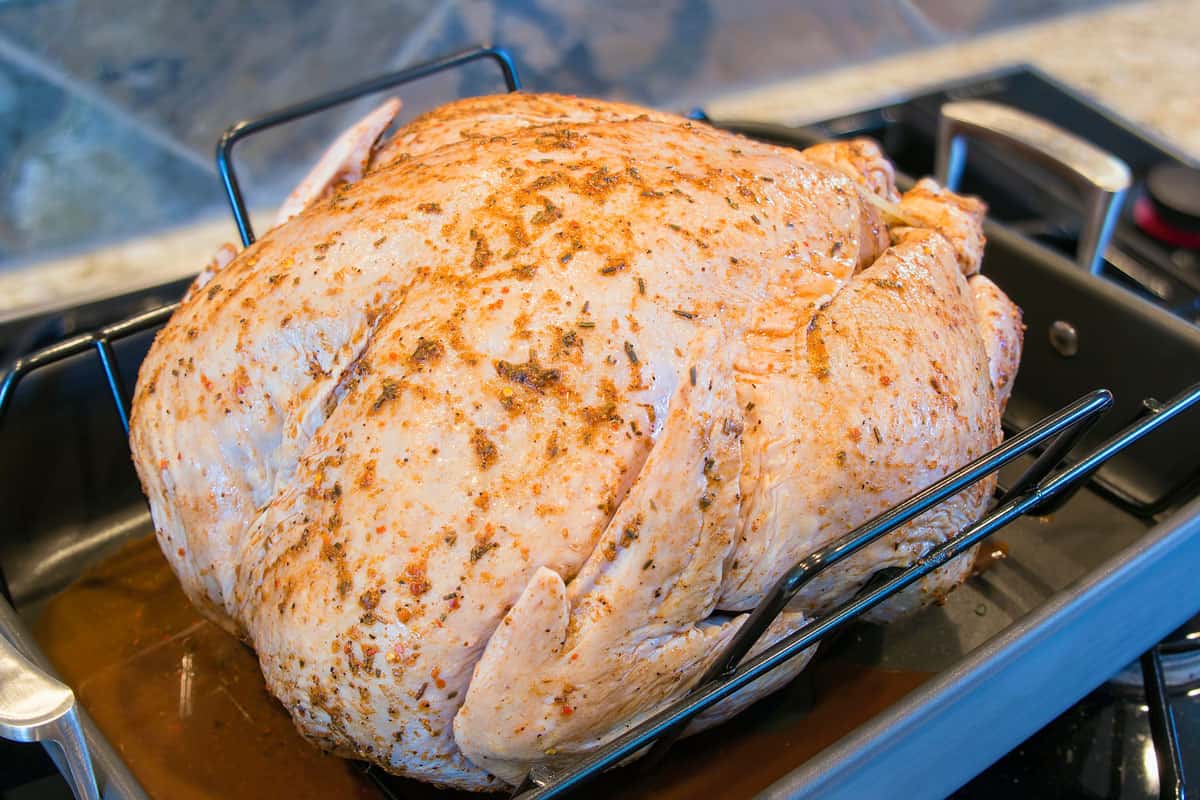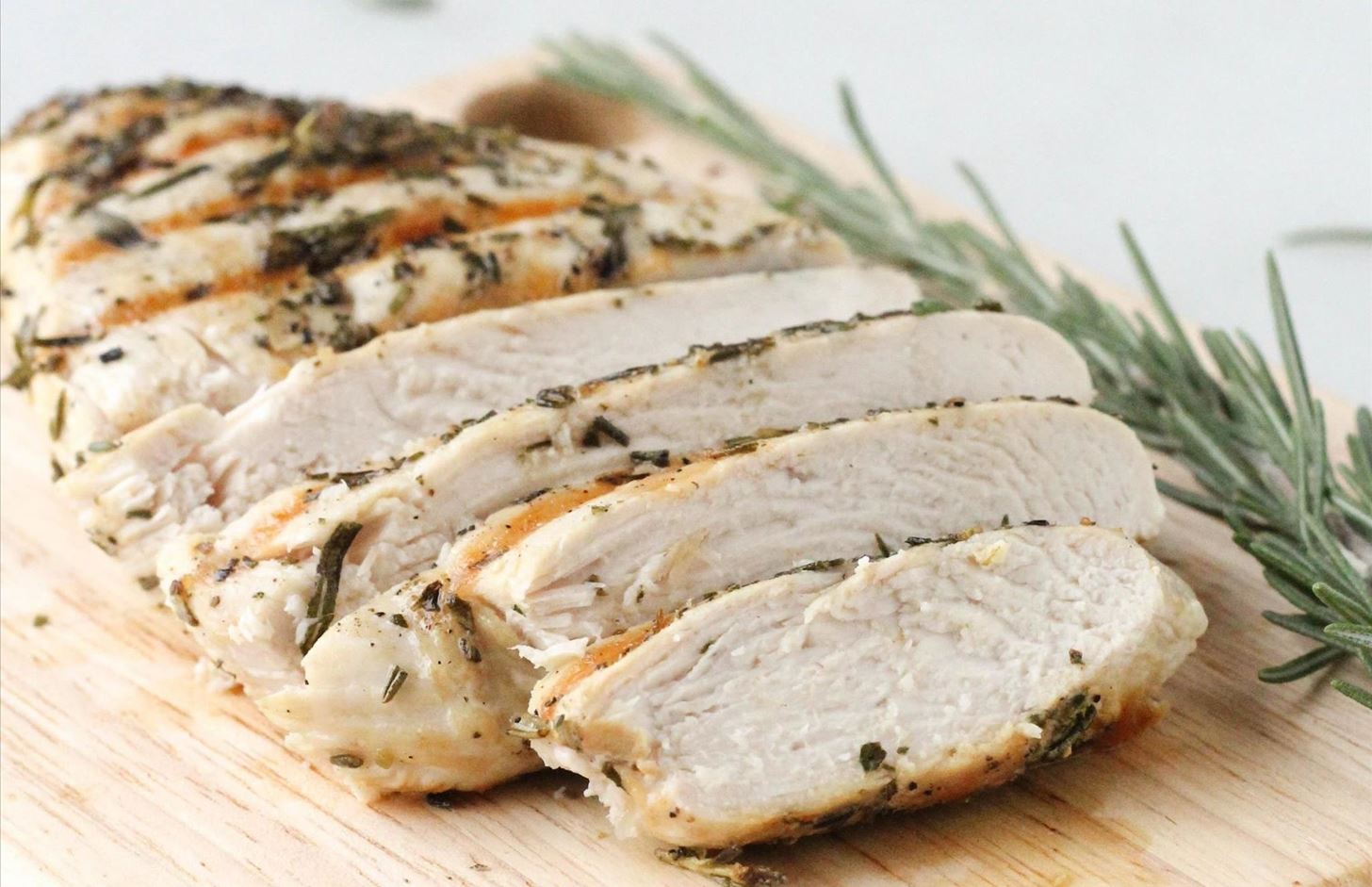Brining is a popular technique used by many cooks to help keep turkey moist and flavorful when cooking. It involves soaking the raw turkey in a saltwater solution allowing the brine to penetrate deeply into the meat. But what if you want to prepare your turkey ahead of time and then freeze it? Is it safe to freeze a brined turkey and will it still retain the benefits of brining after being frozen and thawed?
The short answer is yes, you can absolutely freeze a brined raw turkey However, there are some important steps to follow for best results In this detailed guide, we’ll provide everything you need to know to successfully freeze a brined turkey.
Overview of Turkey Brining
First, let’s do a quick recap on the brining process. Brining works by dissolving salt into the meat through osmosis. This allows the turkey to hold on to more moisture as it cooks, keeping it juicy and tender.
To brine a turkey, you simply submerge it in a solution of water, salt, sugar, and aromatics for a specified time. Typical brining times range from 12-24 hours refrigerated. The salt and water penetrate deep into the meat for enhanced seasoning and moisture retention. Once brined, pat the turkey dry and it’s ready to roast.
While brining does require some advance planning, the benefits of added flavor and a guaranteed moist turkey are worth the extra time.
Is it Safe to Freeze a Brined Turkey?
The short answer is yes, it is perfectly safe to freeze a raw brined turkey. The brining solution will have fully penetrated the meat within the recommended 12-24 hour timeframe before freezing.
Freezing stops any further brining action from occurring. You don’t have to worry about the turkey becoming overly salty or the texture changing with extended freezing time. As long as proper food safety guidelines are followed, there are no increased safety risks associated with freezing a brined turkey compared to an unbrined turkey.
How Long Can a Brined Turkey Stay Frozen?
A brined raw turkey can safely remain frozen for up to 6 months. Turkey quality will start to degrade beyond this timeframe. Signs of freezer burn or “freezer flavor” from dried out meat may become apparent in both taste and texture.
For best quality and flavor, plan to cook your frozen brined turkey within 2-3 months. But up to 6 months is still considered safe for consumption, although the eating quality may suffer after that long in the freezer.
Does a Brined Turkey Need to be Thawed Before Cooking?
You can cook a frozen brined turkey directly from the frozen state if needed. However, thawing first is recommended for best moisture and texture results.
Thawing allows any ice crystals that form during freezing to reabsorb back into the meat. Skipping this step means those ice crystals melt out during cooking, taking moisture with them.
Plan ahead so you have time to thaw the turkey gradually in the refrigerator over 24-48 hours. Avoid thawing at room temperature, as bacteria can multiply rapidly above 40°F.
If short on thawing time, a cold water submersion method works to speed up the process. Keep the turkey in its packaging and submerge in cold water, changing the water every 30 minutes until thawed.
Step-by-Step Guide to Freezing a Brined Turkey
Follow these simple steps for successfully freezing a brined raw turkey:
-
Brine the turkey: Make your brine solution and fully submerge the turkey. Refrigerate and brine for 12-24 hours.
-
Remove turkey from brine: Once brined, remove the turkey from the brine solution and pat very dry with paper towels. Discard used brine.
-
Package for freezing: Place turkey in a sealable freezer bag, pressing out all the air. Or wrap tightly in plastic wrap to prevent freezer burn.
-
Freeze turkey: Place wrapped brined turkey flat in a freezer set at 0°F or below. Freeze for up to 6 months.
-
Thaw turkey: When ready to use, thaw frozen turkey gradually in the refrigerator over 24-48 hours.
-
Cook as usual: Roast the brined turkey as you normally would after thawing!
It’s that easy. The brined turkey is now ready to be frozen for future use. Remember to label packages with the freeze date.
Frequently Asked Questions
Here are answers to some common questions about freezing brined turkeys:
Should you rinse a brined turkey after thawing?
No, do not rinse a brined turkey after thawing. The salt stays embedded in the meat so rinsing will not reduce saltiness. Pat dry only.
Can you refreeze a thawed brined turkey?
It is unsafe to refreeze a thawed turkey if it has been at fridge temperature for over 2 days. At that point, bacteria may have multiplied to dangerous levels.
Does brining a turkey before freezing help?
Yes! Brining before freezing helps lock in moisture and seasoning. The brine will keep penetrating the meat over the long frozen storage time.
How long does an uncooked brined turkey last in the fridge?
A fresh brined raw turkey will last 1-2 days maximum in the refrigerator. Cook within this timeframe for safety.
Can you bake a frozen brined turkey?
Yes, a frozen brined turkey can go directly into the preheated oven, no thawing needed. Just allow 50% more cooking time. Monitor temperature closely.
Key Takeaways on Freezing Brined Turkey
Here are the key tips to remember:
-
Brining before freezing is safe and effective.
-
Follow guidelines for maximum quality:
-
Brine 12-24 hours refrigerated
-
Pat very dry before freezing
-
Freeze for up to 6 months at 0°F
-
Thaw gradually in fridge before cooking
-
Roast turkey immediately after thawing
With proper technique, you can enjoy moist and flavorful home-cooked turkey any time of year with a frozen brined turkey on hand. Brining before freezing is a great time-saving hack for holiday meal prep.

It Produces Juicier Meat
As we’ve already talked about on Food Hacks, brining is a great way to keep moisture in food through osmosis. But salting your chicken before you freeze it is even better because the salt has more time to change how well the meat holds its moisture.
Cooks Illustrated conducted a trial that tested the amount of moisture lost (by weight) between chicken breasts that had been salted or brined prior to freezing, salted or brined after defrosting, or untreated. In the end, the chicken that had been salted before freezing only lost 11%, whereas the chicken that had been salted after defrosting lost 16%. (The chicken that was completely untreated by salt, for comparison, had 22% moisture loss!) These results concluded that salting before freezing was the best method for preventing moisture loss, even over brining after the chicken was defrosted (20% moisture loss).

Helen Rennie of Beyond Salmon did a more informal test and had similar results; she found out that meat that was salted prior to freezing left significantly less water in the freezer bag than the unsalted meat.
Before freezing your chicken, especially if you buy it in bulk, salting it is easier up front, saves time when cooking, and makes the meat more juicy and flavorful. If youre not already incorporating this into your post-grocery shopping routine, I think you should reconsider.
It’s a Time-Saving Step
Think about every recipe you’ve ever made that called for chicken, turkey, Cornish game hen, or some other type of poultry. Salt your protein well, unless the recipe calls for a marinade. This is the first thing you should do and the first rule of thumb. We’ve all been around long enough to know that chicken breast that hasn’t been salted is dry, bland, and not at all interesting. So salting is a step that cannot be skipped.

Since I buy a lot of chicken, I salt it before I freeze it, so that step is skipped in every recipe. It saves time and keeps your counter and kitchen from getting salmonella-contaminated if you cook the piece whole. (Using meat that has already been salted also means you don’t have to wash your hands after handling the chicken as a safety measure.) ).
It might not seem like a lot of time is saved, but I’ve found that doing as much of the prep work ahead of time makes cooking the meal much easier and less stressful.
